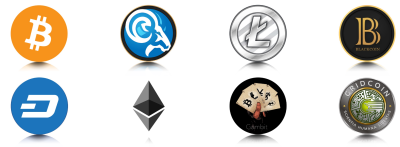Why Do Some Altcoins Fail?

Why do they fail? How do they fail?
If you’ve ever tried trading altcoins before, you know there is lots of profit that can be had out there but also a fair share of risk. But why do some altcoins fail? How do some skyrocket?There are a few key things that can guarantee an altcoin’s success and we’ll discuss them here.
Good ICO (Initial Coin Offering)
ICOs are a very important part of an altcoin’s success. Almost every altcoin that’s ever been successful has had an ICO. Take Ethereum for example. The initial value of the coin was 2,000 ETH for 1 BTC. Some coins offer an ICO price that’s either too high or too low. If a coin is being made, it’s very difficult to determine a good ICO price. Choosing the initial value correctly may seem insignificant, but starting price is integral to how coins develop. While not the most important factor in an altcoin’s beginnings, it’s still a good way to gauge a coin’s success nonetheless.
What makes it special?
Many coins are launched without a purpose, and therefore, they just sit at the 1 or 2 Satoshi mark and never get traded. Why is the coin you’re investing in special? Does it have a unique wallet system or transaction system? What makes it attractive to others?
Some coins are created just to be created, and if there is no interest in the coin besides trading, a coin will never make it very far and will eventually plunge.
What market does it target?
Ethereum was wildly successful for the reason that it targeted application creaters and just general day-to-day application users. This essentially targeted an extremely large market and was very attractive to lots of people. A coin that’s made for only one small market will usually fail; people like having lots of ways to use a coin and be creative with it.
How many people support the coin?
Even if a coin does have good features and is expected to rise, without supporters and programmers that actively work on the coin itself, a coin will not thrive. If a coin shows little to no support by the programmers and users, it will probably fail.
Some malicious actors will even perform 50% attacks on news coins just for fun; it’s much easier to do than you think, and it can destroy coins just after they start. You don’t need thousands of tera-hashes to ensure a coin will succeed, but a site like miningrigrentals.com allows you to rent hashrate from nearly all algorithms, and this will usually prevent these kinds of attacks. Without sufficient support, a coin cannot be successful.
Conclusion
There are many factors that makes a coin successful. The items discussed do not provide an exhaustive list. There are many more minor factors, such as timing of release, market saturation, and real-world events that can also contribute. Nobody can guarantee that a coin is successful, but these are the general things that people look for in an altcoin.
Source: Read Full Article
